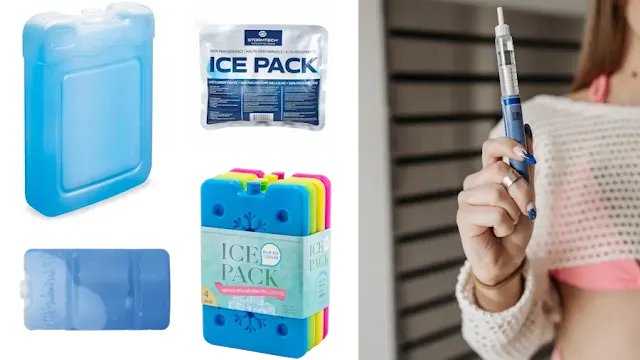During a recent trip to Mumbai, I needed to bring my insulin, which requires constant refrigeration. Navigating India’s busy airports was daunting, but with proper planning—using a compact cooler and coordinating with airline staff—I kept my medication safe. Traveling with refrigerated medication, such as insulin or eye drops, adds complexity to air travel in India’s diverse climates, from Himalayan chills to Goa’s heat. This guide provides essential tips for safely transporting cold-chain medications on India flights, whether in carry-on or checked luggage, ensuring your journey is worry-free.
Table of Contents
- Choose the Right Packaging
- Can You Take Ice Packs on a Plane for Medication?
- How Do You Pack Cold Medicine for Travel?
- Plan Ahead for Air Travel
- Handbag or Checked Bags: Know Your Options
- Tips for Handbag Storage
- Considerations for Checked Bags
- Monitor Temperature Throughout Your Journey
- Emergency Preparedness
- Which Drugs Require Cold Storage?
Choose the Right Packaging
Invest in high-quality insulated containers or travel coolers designed for cold-chain medications. These often include gel packs or ice packs to maintain temperatures between 2–8°C, critical for drugs like insulin or Latanoprost. Check with your pharmacist for specific storage requirements to ensure your medication remains effective.
Can You Take Ice Packs on a Plane for Medication?
Yes, ice packs are permitted in carry-on or checked luggage to keep medications cold, per Air India and TSA guidelines. Inform security officers during screening to avoid delays, and ensure packs are leak-proof to prevent spills.
How Do You Pack Cold Medicine for Travel?
Always pack refrigerated medication in your carry-on for easy access and temperature control. Use original containers with labels and place them in a clear plastic bag inside an insulated cooler. This complies with security regulations and simplifies inspections.
Plan Ahead for Air Travel
Choose direct flights to minimize time without refrigeration. Notify airline staff about your refrigerated medication for smooth security checks. Check with airlines like Air India for specific medical clearance procedures.
Handbag or Checked Bags: Know Your Options
Carry refrigerated medication in your handbag for better control over temperature and access. Checked luggage is less ideal due to variable conditions, but it’s an option for larger supplies if properly packed.
Tips for Handbag Storage
Use a compact insulated pouch with gel packs or frozen water bottles to maintain cold temperatures. Declare your medication at security checkpoints to ensure compliance with regulations like those from the Directorate General of Civil Aviation (DGCA).
Considerations for Checked Bags
If using checked luggage, pack medication in a sturdy insulated container surrounded by clothing for insulation. Label it “Medical Supplies” to alert baggage handlers. Be aware that checked bags may face temperature fluctuations, risking medication efficacy.
Monitor Temperature Throughout Your Journey
Use a portable thermometer to check your cooler’s temperature regularly. Adjust gel packs as needed to maintain the required 2–8°C range, ensuring medications like vaccines or biologics remain effective.
Emergency Preparedness
Carry extra doses and backup cooling options, like instant cold packs. Research pharmacies or medical facilities at your destination (e.g., Apollo Hospitals in major Indian cities) for emergency refills.
Which Drugs Require Cold Storage?
Certain medications and biological materials require refrigeration to maintain potency:
- Injections: Insulin, Victoza, Botox, Humira, Byetta, Caverject, all vaccines (store at 2–8°C; some stable at room temperature for up to 30 days).
- Tablets: Alkeran, VePesid, Leukeran (require refrigeration for long-term stability).
- Ear and Eye Drops: Azasite, Chloramphenicol, Latanoprost (refrigeration prevents degradation).
- Biological Materials: Blood, tissue, and organs (may require -150°C for clinical trials or samples).
Maintaining the cold chain is critical for these medications to ensure safety and efficacy during travel.
FAQs About Transporting Refrigerated Medication on India Flights
Can you take refrigerated medicine on a plane?
Yes, refrigerated medicine is allowed in carry-on or checked luggage on India flights, per DGCA and TSA rules. Use an insulated cooler with ice packs and inform security during screening.
How to keep refrigerated medicine cold while traveling?
Use an insulated container with gel packs or frozen water bottles. Monitor temperature with a portable thermometer and keep medication in your carry-on for better control.
Can you bring refrigerated items on a plane?
Yes, refrigerated items like medications or biological samples are permitted if packed properly. Use leak-proof ice packs and declare them at security checkpoints.
Is cold medicine allowed on planes?
Cold medicine, including refrigerated types, is allowed in carry-on or checked bags. Keep it in original packaging with a prescription or doctor’s note for smooth security checks.
Can I put medication in checked luggage?
Yes, but carry-on is preferred for refrigerated medication to maintain temperature control. If in checked luggage, use a sturdy insulated container with clear labeling.
What medication can you not fly with?
Most medications are allowed, but controlled substances or large liquid volumes may require a prescription or medical certificate. Check with airlines and DGCA regulations.
Related Resources:
Do airport x-rays affect medications
Transporting Refrigerated Medication on India Flights
Travelling with Medicines to India
Overcoming Air Sickness on Indian Domestic Flights
Do you need any vaccinations to travel to India?
External Resources:
TripAdvisor: Flying with Refrigerated Medication
Quora: Traveling with Refrigerated Medicine






No comments:
Post a Comment